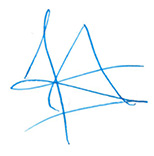This policy applies to all the Group’s entities1 whose activities involve the operation of nuclear facilities or who engage in activities or projects geared towards nuclear facilities: design, construction, equipment manufacture, service provision, maintenance, supply of nuclear fuel, shipment of nuclear materials, radioactive-waste management and decommissioning.
1. Governing principles
Within the EDF Group, we ail share the conviction of being duty-bound to treat nuclear safety as the overriding priority. This is an indispensable prerequisite for the sustainable use of nuclear energy, whose contribution to achieving net zero carbon is fully in line with the Group’s raison d’être.
Each entity is responsible for its nuclear facilities and activities. Nuclear safety is treated as an overriding priority by every manager, every leader and every employee during all phases of a nuclear facility’s life cycle and during all stages of a project. We closely involve our industrial partners in this effort (suppliers, contractors and sub-contractors).
We implement a common set of principles, which are particularly based on IAEA fundamentals and standards, seeking to achieve optimal performance in incident and accident prevention and in the protection of employees, contract workers, the public and the environment.
We emphasise the importance of a robust safety culture within the Group and among our industrial partners. The essential traits of a robust safety culture include risk awareness, regular assessment of risk, managerial leadership, persona! accountability, commitment of the entire workforce, a questioning attitude, a rigourous and prudent approach, the prompt and open reporting of deviations, including those pertaining to fraud and counterfeit, and the freedom to raise any safetyrelated concerns.
We are convinced that excellence in all our spheres of business, supported by quality, equipment reliability, human performance and organisational effectiveness, drives nuclear-safety performance. High standards of nuclear safety also supports and underpins performance in other areas (environmental safety, industrial safety, power generation, etc.).
Dialogue and transparency are key to gaining the trust of all members of society. We maintain constructive dialogue with our personnel and their representatives, with industrial partners, with the public authorities and the regulators, with local communities and with all other nuclear safety stakeholders.
2. Standards and expectations
No. 1
Each entity is accountable for the safety of its nuclear facilities and activities. lt strives for continuous improvement by setting and achieving the highest standards of nuclear safety. lt complies with the legal and regulatory requirements specific to the countries in which it operates.
No. 2
Each entity establishes and implements clear and efficient organisational structures, safetymanagement systems and procedures. lt sets out the delegations of authority and responsibility, as well as specifying the requisite skills and resources. The allocation of the resources necessary for nuclear safety is guaranteed. As quality is an essential component of safety, each entity defines the link between its quality management system and safety management.
No. 3
Each entity ensures that its industrial partners employ trained and diligent professionals. Each entity also ensures that the safety and quality standards applied by its industrial partners are aligned with this policy.
No. 4
Continuous improvement is promoted and supported by a well-structured process, making use of ail the Group’s skills and also those of nuclear safety international organisations. Operating experience is captured, analysed, assigned to the appropriate decision-making levels and acted upon. Periodic safety reviews are conducted. The Group’s nuclear Operators2 Despite its relentless efforts to prevent the risk of accidents, the Group still has to consider their potential occurrence in order to be able to mitigate their consequences and protect the health and safety of ail, the property and the environment. For this purpose, ail of the Group’s entities run an effective emergency preparedness organisation that can be activated at any time. They exercise and improve this organisation by conducting regular drills, involving local and national authorities.
No. 5
Despite its relentless efforts to prevent the risk of accidents, the Group still has to consider their potential occurrence in order to be able to mitigate their consequences and protect the health and safety of ail, the property and the environment. For this purpose, ail of the Group’s entities run an effective emergency preparedness organisation that can be activated at any time. They exercise and improve this organisation by conducting regular drills, involving local and national authorities.
No. 6
An independent nuclear-safety assessment function, often taking the form of an independent safety oversight organisation, operates within each entity, especially on each nuclear site, and at Group level. lndependent from the line management, it verifies that the governing principles and standards of this policy are properly implemented. lt reports to the manager of the entity and escalates concerns if it deems this necessary. Managers ensure that these functions possess the requisite resources, skills and level of authority, and that they effectively fulfil their oversight role.
No. 7
Each entity provides clear, reliable and honest information about its nuclear activities, particularly with regard to plant operations, the events occurring and their potential consequences. This requirement for transparency and dialogue is particularly essential when it cornes to interacting with the regulatory authorities.
Nuclear safety, our continuous commitment and overriding priority
Paris, 12th February 2021

Jean-Bernard LEVY
1 The term “entity” refers to any organisation (including projects), division, EDF business unit or company consolidated within the Group’s accounts. In companies where the Group holds a minority stake, corporat representative officers by EDF must promote principles and standards that align with this policy
2 With regards to nuclear facilities which do not currently benefit from existing international reviews, suitable arrangements will be put in place (e.g. international peer reviews organised internally within the Group).

